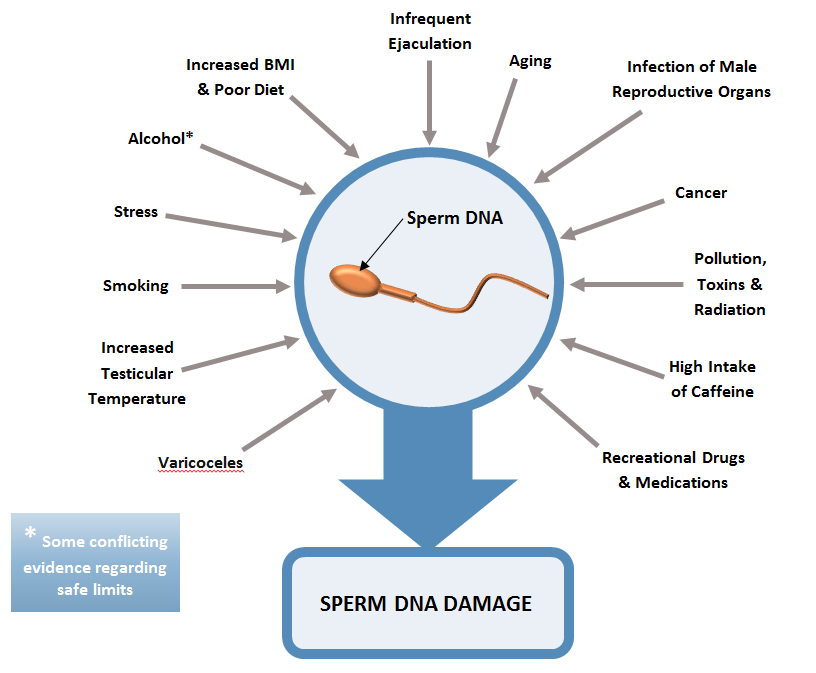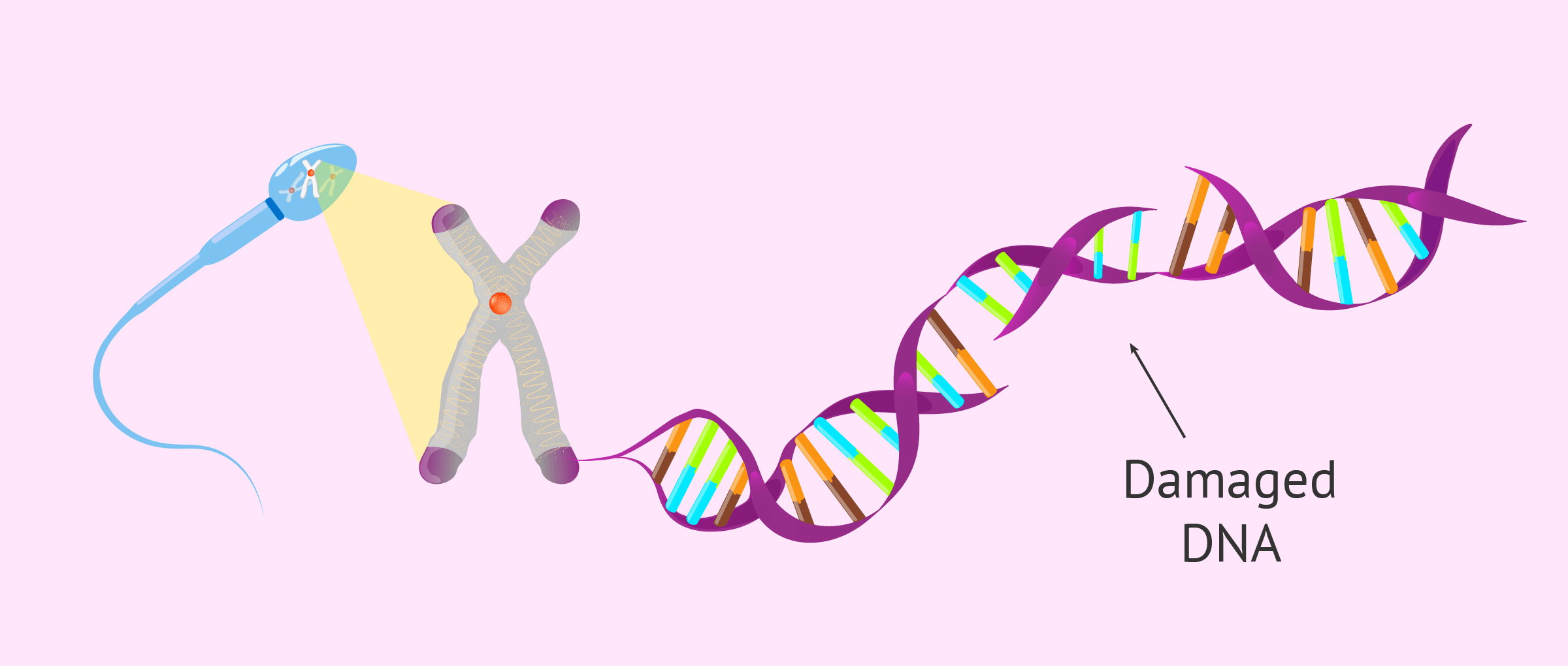Image taken from https://www.invitra.com/en/sperm-dna-fragmentation/
Today, we would be looking at a very critical subject in men “Why test for Sperm DNA Fragmentation” . Hence, what should be done for men with sperm DNA fragmentation. Read this article to find out.
Men’s sperm analysis was covered in our earlier post. Click on this link below to know more if you haven’t already.
https://thefertilityshop.co.uk/lets-talk-about-sperm-analysis/
DNA is the hereditary material in humans and other organisms and consists of two long chains—DNA strands—that are coiled around each other, each made of sugars and phosphate. The information in DNA is stored as a code made up of four types of molecules called bases, which are attached to the DNA strands like rungs on a ladder. Although all humans have the same bases, the order of these bases determines the information available for building and maintaining an organism, Just as different combinations of letters create different words and sentences, the unique sequence of these bases makes your DNA different. Sperm DNA fragmentation occurs when there is a change in the bases or a physical break in one or both of the DNA strands of the chromosomes contained within the sperm.
What Causes Sperm DNA Fragmentation (SDF)?
One major contributor to sperm DNA fragmentation is oxidative stress. Oxidative stress is a strain on the body caused by the built-up damage caused by atoms with unpaired electrons—free radicals—that are not adequately neutralized by antioxidants. Sperm DNA fragmentation is associated with infections, cigarette smoking, drug use, exposure to environmental and occupational pollutants, advanced age, varicocele (enlarged veins inside the scrotum), illnesses with high fevers, elevated testicular temperature (laptop computers, hot tubs), chronic diseases such as diabetes, cancer and cancer treatment, poor diet, and obesity. Sperm DNA fragmentation also occurs when the body lacks the ability to repair breaks that occur in DNA, and when there is a deficiency of proteins that typically bind DNA and keep it in a compact form that is less susceptible to damage.

Why Would SDF Testing Be Useful?
While a semen analysis is still the most commonly used test in the workup for male infertility, research has shown that the results of semen analysis tests cannot reliably predict whether a male is fertile or if a pregnancy will occur with infertility treatment. As a result, clinicians and researchers have looked for other ways to determine whether or not a male is fertile.
Successful embryo development requires, among other things, undamaged DNA from both the egg and sperm. Studies have shown that sperm DNA damage is more common in infertile men and may contribute to poor reproductive outcomes. A significant proportion of men with infertility have also been found to have increased DNA fragmentation despite having normal semen analysis results. These associations have led to the testing of DNA integrity as another method of assessing fertility potential.
What Does Testing for SDF Involve and Who Should Have It Performed?
There are many different tests for sperm DNA fragmentation, but the most commonly studied ones are the sperm chromatin structure assay (SCSA), the deoxynucleotidyl transferase-mediated dUTP nick end labeling assay (TUNEL), the single-cell gel electrophoresis assay (COMET), and the sperm chromatin dispersion test (SCD). These tests provide an estimate of the
degree of DNA damage present in a semen sample. Testing for sperm dna fragmentation | the fertility shop* is typically performed at a specialist laboratory using a semen sample obtained through ejaculation.
The latest WHO manual 2021 includes SDF testing in its extended examination list
Having more clarity on the quality of sperm will undoubtedly help couples to gain a clearer diagnosis and reduce the length of their fertility journey. Male infertility represents a very significant part of the overall fertility spectrum, affecting half of all couples experiencing fertility problems. According to HFEA, male infertility is now the most common reason for couples seeking treatment. Despite this, male infertility is rarely fully investigated. Semen analysis has been the only test offered as standard, but this examines sperm quantity rather than genetic quality. Worldwide, experts agree that sperm quality is becoming worse but these defects are often missed by the standard semen analysis. Sperm DNA fragmentation testing has been widely used in the last 20 years in andrology and assisted reproduction laboratories. It could represent an important addition in the work-up of male infertility, becoming one of the most discussed and promising biomarkers in basic and clinical
andrology.
Can You Treat Sperm DNA Fragmentation?
Given that new sperm is created every 72 days, decreasing exposure to oxidative stress may decrease the degree of sperm DNA fragmentation present. Recommendations to reduce oxidative stress:
- Varicoceles should be evaluated by a urologist to determine whether surgical repair is necessary.
- Avoid hot tubs and tight-fitting underwear.
- Eat a healthful diet full of fruits and vegetables, and rich in antioxidants. Exercise regularly.
- Avoid smoking and illicit drugs. Limit alcohol intake. Have a urologist look over your medication list to determine if any medications need to be switched or adjusted (e.g. SSRIs).
- Consider the use of supplements containing vitamins and antioxidants.
Would you love to read more on female microbe? I guess you might want to: https://ecotherapies.co/uncategorized/reproductive-microbiome-and-your-fertility/






0 Comments